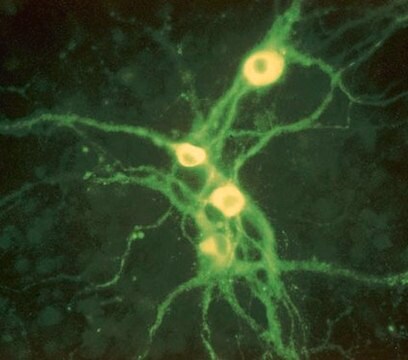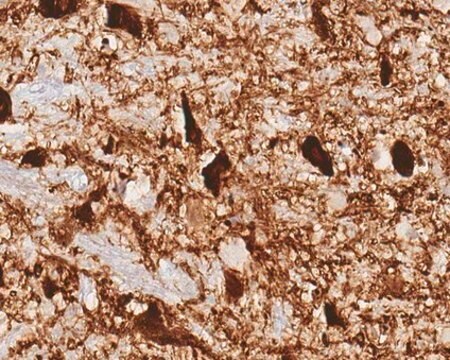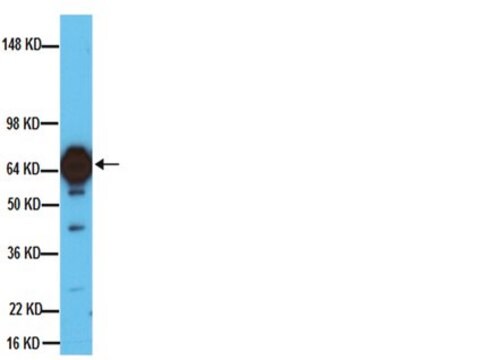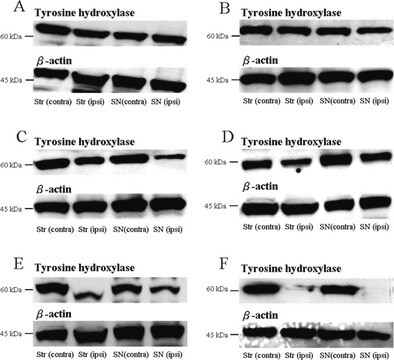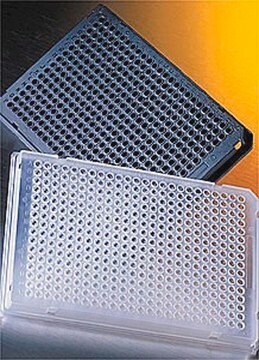MAB5280X
Anti-Tyrosine Hydroxylase Antibody, clone 2/40/15, Alexa Fluor™ 488
clone 2/40/15, Chemicon®, from mouse
Synonyme(s) :
Anti-DYT14, Anti-DYT14|, Anti-DYT5b, Anti-TYH
About This Item
Produits recommandés
Source biologique
mouse
Niveau de qualité
Conjugué
ALEXA FLUOR™ 488
Forme d'anticorps
purified immunoglobulin
Type de produit anticorps
primary antibodies
Clone
2/40/15, monoclonal
Espèces réactives
rat, bovine, quail, chicken
Fabricant/nom de marque
Chemicon®
Technique(s)
immunohistochemistry: suitable
Isotype
IgG2a
Numéro d'accès NCBI
Numéro d'accès UniProt
Conditions d'expédition
wet ice
Modification post-traductionnelle de la cible
unmodified
Informations sur le gène
rat ... Th(25085)
Spécificité
Immunogène
Application
Optimal working dilutions must be determined by end user.
Neuroscience
Neurotransmitters & Receptors
Neuronal & Glial Markers
Forme physique
Stockage et stabilité
Autres remarques
Informations légales
Clause de non-responsabilité
Unless otherwise stated in our catalog or other company documentation accompanying the product(s), our products are intended for research use only and are not to be used for any other purpose, which includes but is not limited to, unauthorized commercial uses, in vitro diagnostic uses, ex vivo or in vivo therapeutic uses or any type of consumption or application to humans or animals.
Vous ne trouvez pas le bon produit ?
Essayez notre Outil de sélection de produits.
Code de la classe de stockage
12 - Non Combustible Liquids
Classe de danger pour l'eau (WGK)
WGK 2
Point d'éclair (°F)
Not applicable
Point d'éclair (°C)
Not applicable
Certificats d'analyse (COA)
Recherchez un Certificats d'analyse (COA) en saisissant le numéro de lot du produit. Les numéros de lot figurent sur l'étiquette du produit après les mots "Lot" ou "Batch".
Déjà en possession de ce produit ?
Retrouvez la documentation relative aux produits que vous avez récemment achetés dans la Bibliothèque de documents.
Notre équipe de scientifiques dispose d'une expérience dans tous les secteurs de la recherche, notamment en sciences de la vie, science des matériaux, synthèse chimique, chromatographie, analyse et dans de nombreux autres domaines..
Contacter notre Service technique